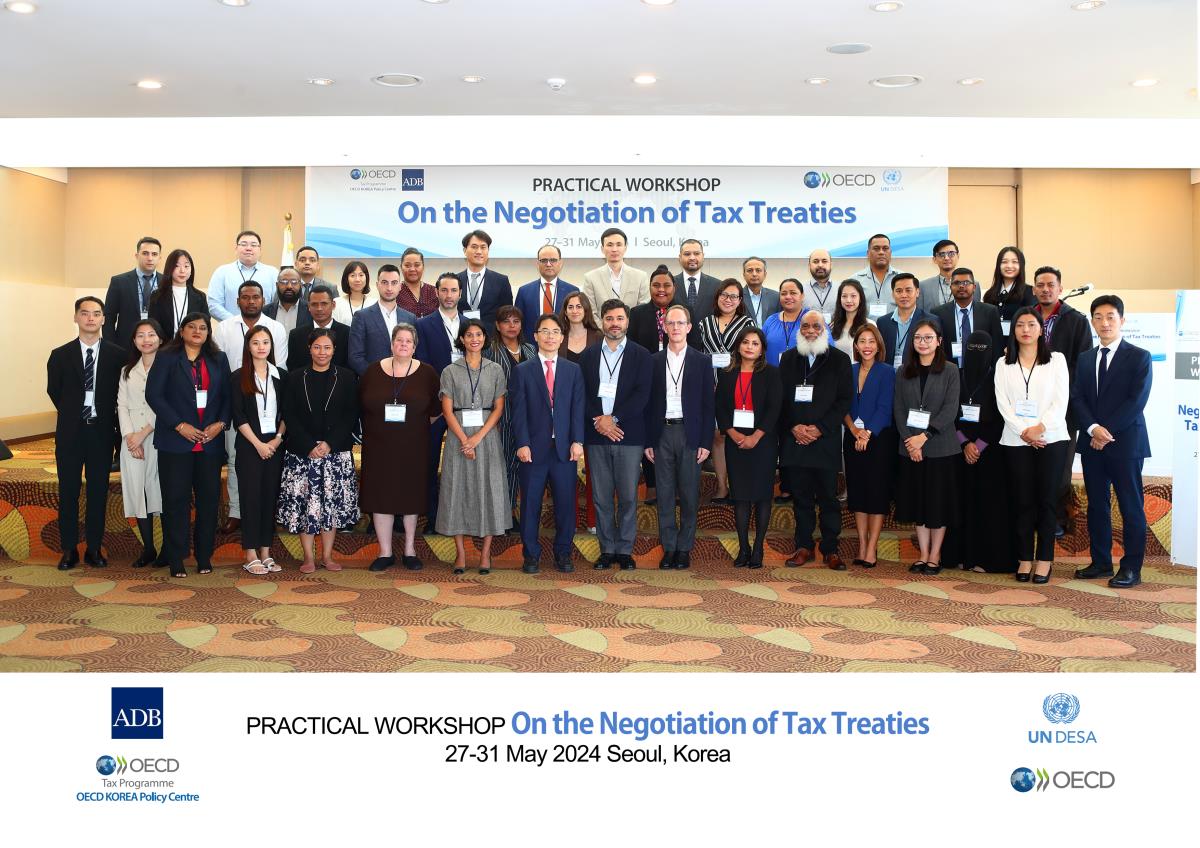| Host | Korea TC – OECD – ADB – UNDESA |
| Date | 27-31 May, 2024 |
| Time | |
| Type | In-person |
| Venue | President Hotel in Seoul, Korea |
| Attendees | 32 tax officilas from non-OECD countires in Asia-Pacific region and 9 traniners from OECD, ADB, and UNDESA |
Main Contents
 The Tax Programme of the OECD Korea Policy Centre (KPC), in collaboration with the OECD, ADB and the United Nations Department for Economic and Social Affairs (UNDESA), organised the Practical Workshop on the ‘Negotiations of Tax Treaties’ from 27 to 31 May at the President Hotel in Seoul. It was participated by 32 tax officials from Asia-Pacific countries and experts from the OECD, ADB, and UNDESA attended the workshop. The experts were Néstor Venegas (OECD), Edward Barret (OECD), Sara Shearmur (OECD), Juan Carlos Trujilo (Mexico), Ronita Ram(Australia), Patricia Brown (UNDESA), Irving Ojeda(UNDESA) and Sathi Meyer-Nandi (ADB). The workshop aimed at learning about the provisions in tax treaties and the issues that can arise in negotiating, applying, and understanding them through first-hand experience in tax treaty negotiations. The workshop took the form of the simulated negotiation of a bilateral double-tax treaty between two fictional countries, Fredonia and Utopia, based on a recently concluded treaty, a fictitious treaty model, and the tax systems of the two countries. Each participant became an active member of a team of 4-5 people, divided into two teams, one for Utopia and one for Fredonia. All teams were assigned an instructor and spent the morning preparing for the negotiation and the afternoon conducting the focused negotiation. All the participants were ensured to have the opportunity to deeply engage in discussions of their team. In advance, the participants were provided with basic facts about the tax policies of the two fictional countries, Utopia and Fredonia, as well as a recently signed treaty between Utopia and Atlantis and a recently signed treaty between Fredonia and Lilliput, and a model treaty presented by each country. By participating in the process of preparing for the negotiations, each participant was encouraged to compare and examine the treaties and provisions of each country side by side, and it was expected that by studying the materials provided in advance and with the help of the instructors, they would be able to expand their practical skills and knowledge of the negotiation process. |

